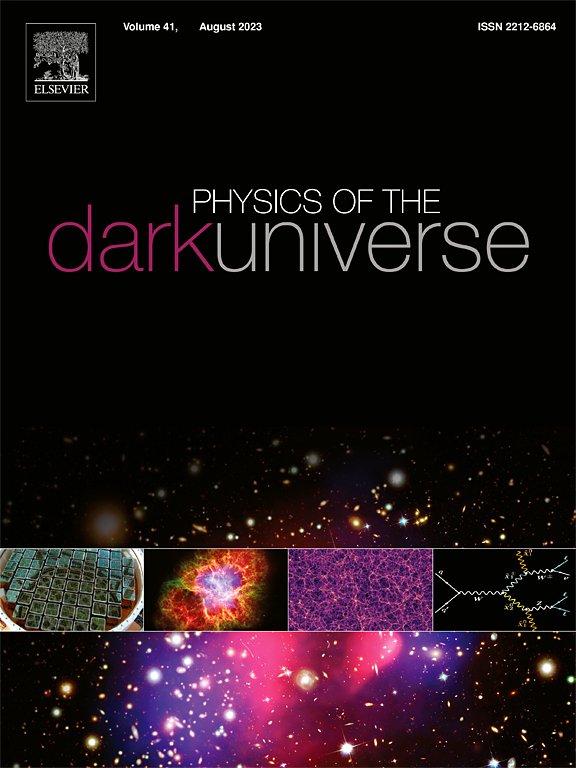Spin induction from scattering of two spinning black holes in dense clusters
IF 5
2区 物理与天体物理
Q1 ASTRONOMY & ASTROPHYSICS
引用次数: 0
Abstract
In this paper, we use numerical relativity to study the spin induction effect within close hyperbolic encounters of initially spinning black holes. We review the initially non-spinning case and explore the cases of initially aligned, anti-aligned and orthogonal spins with respect to the orbital angular momentum . We find that, for a given initial effective spin, the black hole with a smaller initial spin acquires a greater spin-up than the other black hole after the interaction. We study three different scenarios regarding initial effective spin (), using three different scattering angles in order to obtain maximally spin-inducing scenarios. We also find that the final effective spin-ups with respect to the initial spins are well-fitted by a parabola. For spins orthogonal to , we observe that the black hole spins precess, and that the induced spin in the -direction depends quadratically on the value of the initial spins. These phenomena suggest that dense black hole clusters present a rich spin dynamics, where black hole spins may acquire non-trivial distributions.
求助全文
约1分钟内获得全文
求助全文
来源期刊

Physics of the Dark Universe
ASTRONOMY & ASTROPHYSICS-
CiteScore
9.60
自引率
7.30%
发文量
118
审稿时长
61 days
期刊介绍:
Physics of the Dark Universe is an innovative online-only journal that offers rapid publication of peer-reviewed, original research articles considered of high scientific impact.
The journal is focused on the understanding of Dark Matter, Dark Energy, Early Universe, gravitational waves and neutrinos, covering all theoretical, experimental and phenomenological aspects.
 求助内容:
求助内容: 应助结果提醒方式:
应助结果提醒方式:


